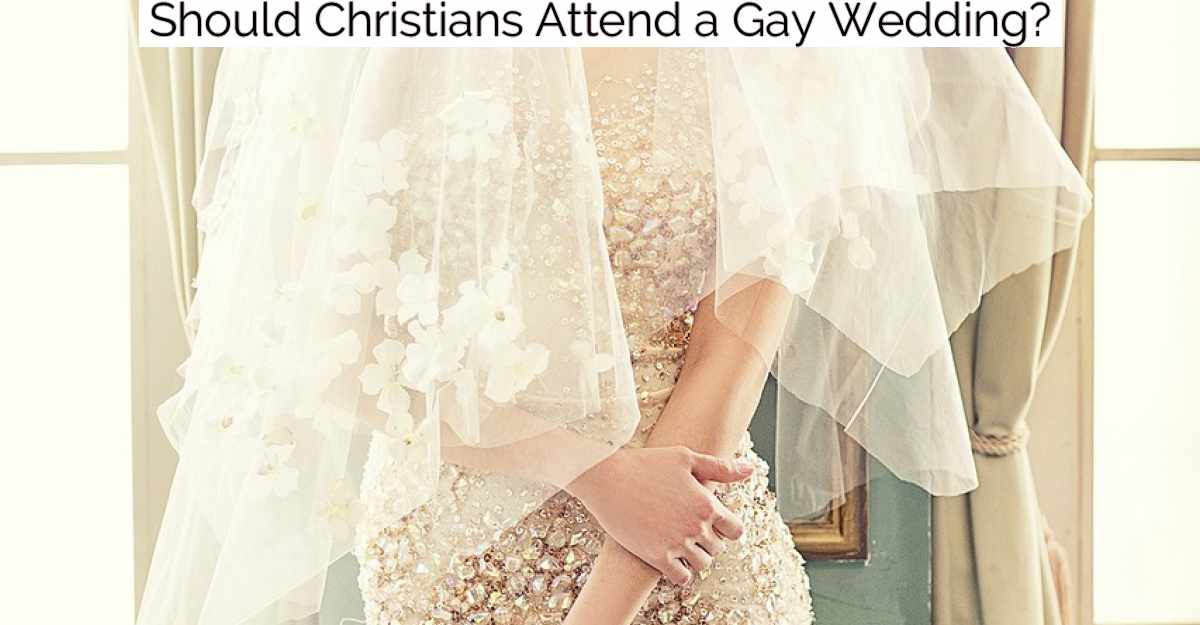Yes, Christians should consider attending a gay wedding as an expression of unconditional love and inclusivity, which are fundamental Christian values.
The decision involves interpreting scriptural directives regarding homosexuality, such as those found in Leviticus and Romans, alongside the overarching Christian imperative to love and honor all individuals as creations in the image of God.
Attending such an event can be viewed as an opportunity to support friends or family members, thereby deepening relationships and affirming the importance of love and acceptance within the community.
This choice reflects not only personal beliefs but also the broader Christian ethos of compassion and understanding toward others, regardless of differences.
Scriptural Perspectives on Homosexuality
When examining scriptural perspectives on homosexuality, it’s essential to explore both the Old and New Scriptures teachings.
In the Old Canon, Leviticus 18:22 explicitly states, "Thou shalt not lie with mankind, as with womankind: it’s abomination." This has often been interpreted as a clear prohibition against homosexual acts.
Similarly, the story of Sodom and Gomorrah has been historically linked to divine judgment against homosexual behaviors, although some scholars argue that the primary sin of the cities was a lack of hospitality.
In the New Testament, the Apostle Paul addresses homosexuality in Romans 1:26-27, describing it as "unnatural" and a consequence of humanity’s rejection of God.
However, the context of these passages is often debated, with some suggesting that these references specifically condemn exploitative or non-consensual acts rather than a consensual same-sex relationship.
These scriptural references form the basis of traditional Christian views on homosexuality. They’re vital in understanding the theological framework that influences how some Christians respond to modern discussions on LGBTQ+ rights and issues.
Yet, interpreting these texts requires careful consideration of historical context, translation nuances, and the broader biblical message of justice and mercy.
The Concept of Christian Love
Understanding scriptural perspectives on homosexuality provides a necessary backdrop for exploring the concept of Christian love, a fundamental tenet of the faith. This concept encompasses an unconditional commitment to the well-being of others, irrespective of their actions or beliefs. It’s rooted in the belief that every person is made in the image of God and consequently deserves respect and kindness.
Christian love, often referred to by the Greek word "agape," is characterized by its selflessness and benevolence. It doesn’t seek its own benefit but looks to the good of others. This type of love is central to many teachings of Jesus Christ, who emphasized loving one’s neighbor as oneself. He illustrated this through parables and his interactions with those marginalized by society.
In the context of attending a gay wedding, this principle challenges Christians to reflect on the essence of their love and commitment to all individuals. It raises questions about the balance between upholding one’s beliefs and demonstrating love in tangible, compassionate ways.
Consequently, the decision to attend can be seen as a personal reflection of how one interprets and lives out the demands of Christian love in complex, real-world scenarios.
Social Implications and Relationships
Steering the decision to attend a gay wedding, Christians often confront significant social implications and challenges within their relationships. This choice can affect perceptions and dynamics in their family, church community, and broader social circles.
On one hand, attending the wedding may be seen as an affirmation of personal relationships and a demonstration of unconditional love and inclusivity. This act can strengthen bonds with friends and family members who identify as LGBTQ+ or support LGBTQ+ rights, fostering a sense of unity and understanding.
On the other hand, it may also lead to tensions or distancing in relationships with those who hold a traditional view on marriage within the Christian doctrine. These individuals might view attendance as an endorsement of beliefs that contradict their understanding of biblical teachings.
Consequently, Christians are often caught in a dilemma, balancing the desire to maintain personal convictions with the need to show support and love for others in their life.
Navigating these social waters requires careful consideration and open communication. It’s essential for individuals to reflect on the impact of their choices, not only on their personal faith journey but also on their relationships within various communities.
Personal Convictions Vs. Community Expectations
Personal convictions and community expectations often place Christians in a complex tug-of-war, especially when deciding whether to attend a gay wedding. On one hand, personal convictions, shaped by religious beliefs and individual interpretations of scripture, may steer a Christian towards declining an invitation based on their understanding of marriage.
On the other hand, the expectations of their community, which could be more accepting or liberal, might encourage participation to show support and love regardless of differing views.
This conflict isn’t just internal. It also reflects in the dynamics within churches which might vary widely in their approach to such social issues. Some congregations might emphasize the importance of adhering strictly to traditional views, while others advocate for a more inclusive attitude that emphasizes love and acceptance over doctrinal purity.
Christians must then navigate this terrain that’s fraught with the risk of alienating either their faith community or their broader social circles. The decision to attend a gay wedding can therefore serve as a litmus test of sorts, revealing one’s personal stance and either aligning with or challenging the broader community’s norms and expectations.
Each choice carries potential repercussions, impacting relationships and one’s standing within both religious and social spheres.
Navigating Conflicts Between Faith and Attendance
Maneuvering conflicts between faith and the decision to attend a gay wedding often puts Christians at a spiritual and emotional crossroads. This dilemma stems from a tension between upholding one’s religious beliefs and showing love and support to friends or family members. Christians may feel torn, worried about compromising their faith or alienating loved ones.
Objectively, the core issue revolves around interpreting religious texts and the teachings of the church regarding homosexuality and marriage. Different denominations and communities within Christianity hold varied views, ranging from strict opposition to more accepting stances. This divergence notably influences individual decisions.
Moreover, the emotional aspect can’t be overlooked. Attending a gay wedding doesn’t necessarily mean endorsing all aspects of it, but rather, it can be seen as an act of unconditional love and support.
It’s vital to reflect on the impact of one’s decision on personal relationships and community ties.
Ultimately, Christians facing this decision must weigh their personal convictions against the potential to maintain and nurture important relationships. They might find it helpful to seek counsel from trusted religious leaders or reflect deeply on the teachings of compassion and love central to their faith.
Such reflection often guides them through this challenging terrain, balancing faith with empathy and love.
Conclusion
In summary, Christians grappling with whether to attend a gay wedding must weigh scriptural teachings against the imperative to express love and support. This balance involves considering both personal convictions and the wider social implications. Ultimately, steering through this decision requires a thoughtful reconciliation of faith with the desire to maintain meaningful relationships. Each individual must reflect deeply to find a path that aligns with their spiritual values while honoring their connections to others in their community.







